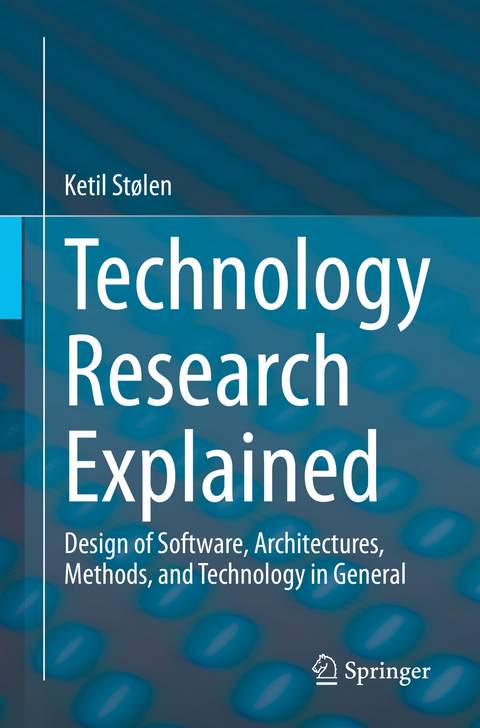
Technology Research Explained
Springer International Publishing (Verlag)
978-3-031-25816-9 (ISBN)
This book aims to help research practitioners in technology science avoid some of the most common pitfalls or at least make them easier to overcome. Many technology scientists put too little weight on how they conduct their work and should be able to become significantly better at what they do by being more aware of methodological issues. The book differs from other related works in two main respects: First, by focusing on creating, producing, or inventing new artifacts - in other words, technology science. Second, by describing a general approach to technology science linking together specialized research methods.
The book consists of 14 chapters. Following the first introductory chapter are two chapters providing the foundation for the rest of the book. These chapters clarify the meaning of key concepts and describe an overall process for technology science. The subsequent chapters 4-11 are about this process. Chapters 4, 5, and 6 concern problem analysis, research planning, and hypothesis formulation. The following five chapters then aim at evaluation. Chapter 7 introduces the concept of prediction, which plays a fundamental role in evaluating hypotheses. Chapters 8-10 address the evaluation of universal, existential, and statistical hypotheses. Chapter 11 concerns quality assurance and introduces the concepts of validity and reliability. Next, in chapters 12 and 13, we address publishing with an emphasis on the specifics of technology science. Eventually the last chapter, chapter 14, briefly introduces the philosophy of science.
The book systematically collects in the form of suggestions, recommendations, and guidelines the author's 35-year experience as a researcher, author and reviewer in technology science. It is written for anyone working in technology science, from master's students to researchers and supervisors.
lt;p>Ketil Stølen is Chief Scientist at SINTEF (and Leader of the Research Group for Thrustworthy Green IoT Software at the Department for Software and Service Innovation there), and Professor at the Department of Informatics at the University of Oslo. He has been Project Leader of many European research projects and has more than 35 years of experience in conducting, presenting and supervising research. Ketil is also an elected member of Norges Tekniske Vitenskapsakademi.
- 1. Introduction. - 2. Technology Science, Explanation Science, and Innovation. - 3. Technology Science and Its Overall Process. - 4. Problem Analysis. - 5. Planning. - 6. Hypotheses. - 7. Predictions. - 8. Evaluation of Universal Hypotheses. - 9. Evaluation of Existential Hypotheses. - 10. Evaluation of Statistical Hypotheses. - 11. Quality Assurance. - 12. Publishing. - 13. Article Writing. - 14. Technology Science from the Perspective of Philosophy of Science.
| Erscheinungsdatum | 25.02.2023 |
|---|---|
| Zusatzinfo | XI, 183 p. 32 illus. |
| Verlagsort | Cham |
| Sprache | englisch |
| Maße | 155 x 235 mm |
| Gewicht | 308 g |
| Themenwelt | Sozialwissenschaften ► Pädagogik ► Allgemeines / Lexika |
| Schlagworte | Design science • Evaluation of Hypothesis • philosophy of science • Quality assurance • research ethics • Research Publishing • Technology development • technology science |
| ISBN-10 | 3-031-25816-9 / 3031258169 |
| ISBN-13 | 978-3-031-25816-9 / 9783031258169 |
| Zustand | Neuware |
| Informationen gemäß Produktsicherheitsverordnung (GPSR) | |
| Haben Sie eine Frage zum Produkt? |
aus dem Bereich


